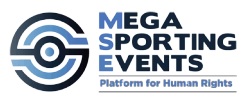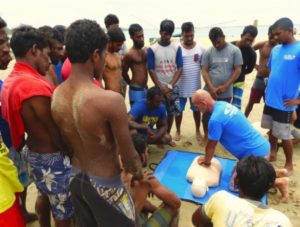
The KiSS Programme travels to South America
The 6th FIM Supermoto World Championship round to be held in Chachagüi, Colombia, on 4 and 6 August 2017 will be yet another landmark […]




A total of 11 White Papers have been produced, clustered into four themes referring to key stakeholder groups. These White Papers aim to present the latest thinking, practice, and debate in relation to key human rights issues involved in the planning, construction, delivery, and legacy of MSEs. Each paper also considers the case for, and potential role of, an independent centre of expertise on MSEs and human rights.
This White Paper gives an overview on the most frequent corruption risks linked to mega-sporting events (MSEs), including:
- Corruption within bidding processes
- Corruption in contracting
- Corruption undermining due diligence and regulations.
Over the last three decades as MSEs have become a more and more a sought after instrument by which to demonstrate a country’s economic and political strength, its ability to organise big events, and its status in the international community, the risk of corrupt practices to win bids to host these events has increased enormously.
As a bidding city and the respective country have to invest a huge amount of money and prestige in order to stage an MSE, the pressure to succeed is high and may increase the risk of achieving the goal - not just by fair lobbying.


Through the Eyes of Meritxell Pey volunteer
Motorcycles and the Environment? Naturally! Does the word KiSS ring any bells with you? I suppose you all think about the primary meaning of […]





Russia to host Ride Green Cup
The Russian Educational Children’s Center “Orlyonok” will be the perfect venue to host the FIM Junior Motocross World Championship in 2016 and the second […]




Isa Signs Key Partnership Agreement With Ioc-recognized International Lifesaving Federation
The International Surfing Association (ISA) has today announced a key strategic partnership with the International Lifesaving Federation (ILS) to establish a universally recognized, global […]



KISS Barcelona
The Circuit will organise a series of actions in order to raise awareness among the public attending the Grand Prix as regards environmental care […]





FIFA publishes landmark Human Rights Policy
Following adoption by the FIFA Council in May 2017, FIFA has published a new, landmark Human Rights Policy. The document embodies article 3 of […]




Movistar Yamaha KiSS Mugello
Yamaha Motor Racing Srl raises awareness for environmental and social sustainability by supporting the KiSS Mugello programme, staged at the sixth round of the […]





Celebrate the World Environment Day with us!
On 5 June, go outside and show us that you’re #WithNature. Breathe in the beauty and remember that by keeping our planet healthy, we […]





Sustainability on track at Mugello Grand Prix
KiSS Mugello, the sustainability programme of the Italian Motorcycle Grand Prix, marks the fifth edition. Environmental and social initiatives will be carried out, also […]



